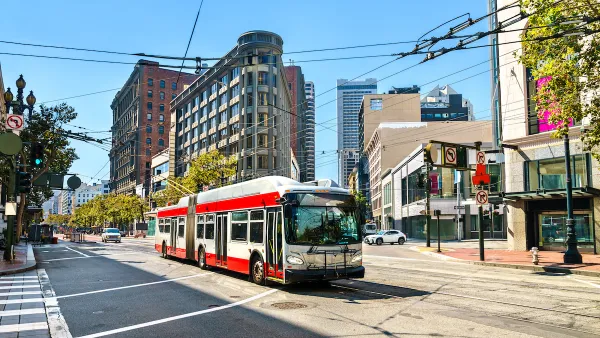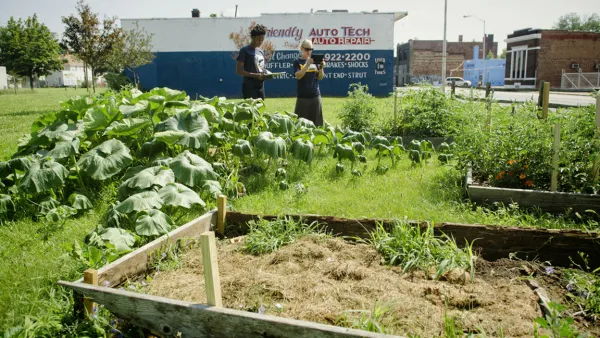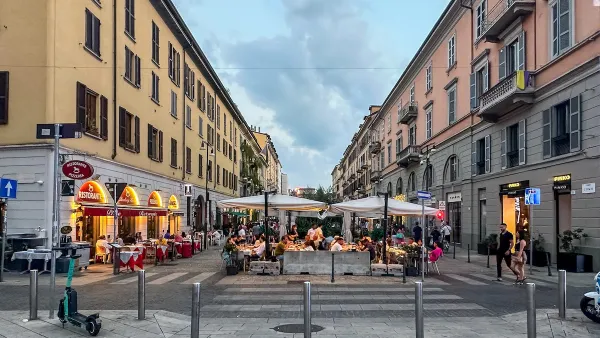Often, participants in public debates use words to mean things very different from their common-sense meanings, in order to manipulate the public’s emotions. Two examples in the field of urban planning come to mind.
Often, participants in public debates use words to mean things very different from their common-sense meanings, in order to manipulate the public's emotions. Two examples in the field of urban planning come to mind.
Road lobby supporters claim to be for "mobility." In their lingo, "mobility" means "the ability to drive as fast as possible." But in common English, mobility means the ability to move from place to place generally. The two concepts are quite different because sometimes, policies designed to improve drivers' mobility impede mobility for others. For example, if a two-lane, slow-traffic street is widened to ten lanes, pedestrians may not be able to safely cross that street. Thus, those pedestrians are actually rendered less mobile by ostensibly pro-"mobility" policies. Similarly, if a new road shifts development to a place without public transit, transit-dependent job-seekers are effectively rendered less mobile, since they cannot easily reach jobs in the newly created "edge city." Fast car traffic may have its virtues, but it is not the same thing as mobility for all.
But environmentalists are also adept in manipulating the language. A common environmentalist buzzword is "sustainability." In environmentalist lingo, "sustainable" really means "environmentally sound" - a policy that ought to be adopted or a design that ought to be imitated. But according to dictionary.com, "sustainable" does not mean something that should be sustained; rather, it means "capable of being sustained. " Now, I would love to believe that sprawl cannot be sustained. But if I did, I probably wouldn't waste time writing about why it shouldn't be; instead, I would declare victory, seek an alternative career, and spend my days in giddy celebration of our glorious (or at least pedestrian-friendly) future. By confusing what ought to be sustained ("sustainable" in the sense environmentalists use the term) with what is likely to be sustained ("sustainable" in the dictionary sense of the term) environmentalists mangle the English language.

Analysis: Cybertruck Fatality Rate Far Exceeds That of Ford Pinto
The Tesla Cybertruck was recalled seven times last year.

National Parks Layoffs Will Cause Communities to Lose Billions
Thousands of essential park workers were laid off this week, just before the busy spring break season.

Retro-silient?: America’s First “Eco-burb,” The Woodlands Turns 50
A master-planned community north of Houston offers lessons on green infrastructure and resilient design, but falls short of its founder’s lofty affordability and walkability goals.

Test News Post 1
This is a summary

Analysis: Cybertruck Fatality Rate Far Exceeds That of Ford Pinto
The Tesla Cybertruck was recalled seven times last year.

Test News Headline 46
Test for the image on the front page.
Urban Design for Planners 1: Software Tools
This six-course series explores essential urban design concepts using open source software and equips planners with the tools they need to participate fully in the urban design process.
Planning for Universal Design
Learn the tools for implementing Universal Design in planning regulations.
EMC Planning Group, Inc.
Planetizen
Planetizen
Mpact (formerly Rail~Volution)
Great Falls Development Authority, Inc.
HUDs Office of Policy Development and Research
NYU Wagner Graduate School of Public Service





























